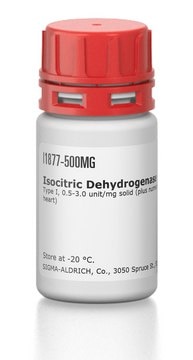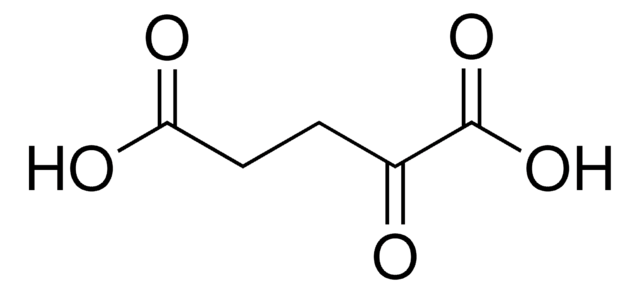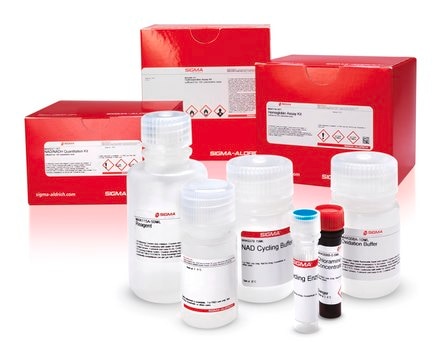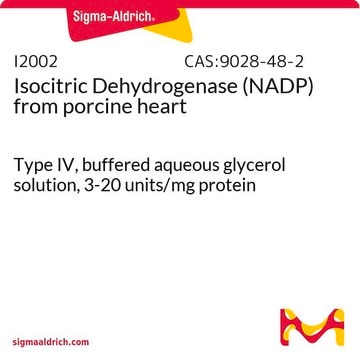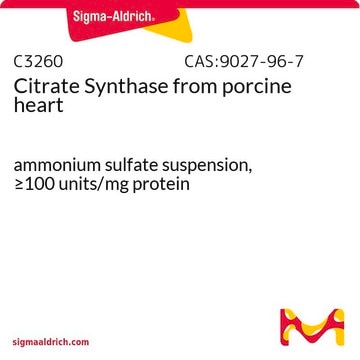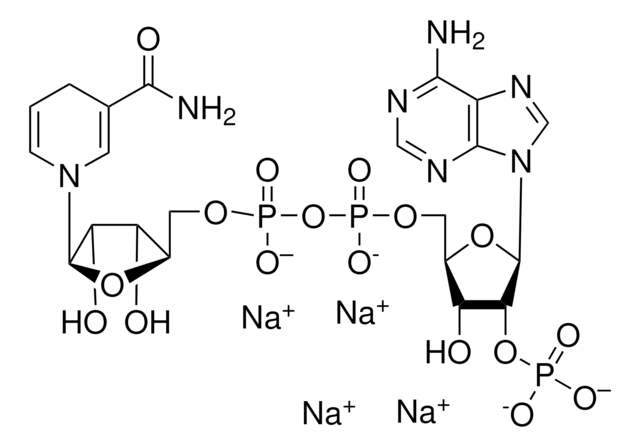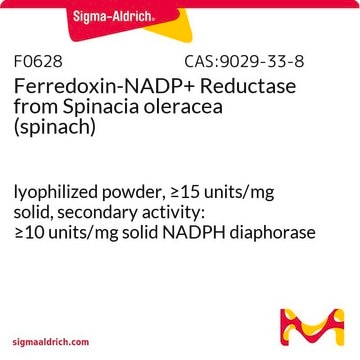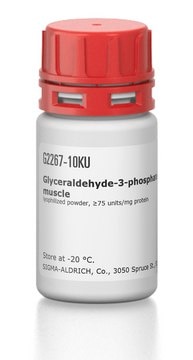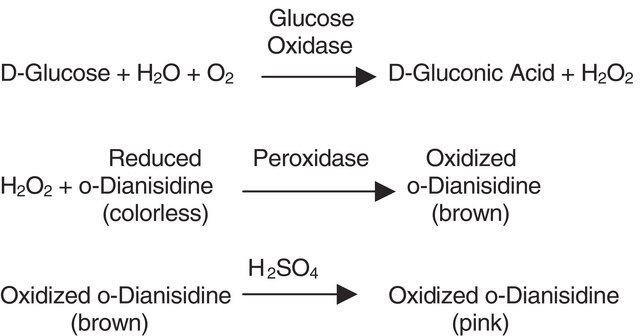A5384
Aconitase from porcine heart
Synonym(s):
Aconitate hydratase, Citrate (isocitrate) hydrolyase
Sign Into View Organizational & Contract Pricing
All Photos(1)
About This Item
CAS Number:
MDL number:
UNSPSC Code:
12352204
NACRES:
NA.54
Recommended Products
biological source
Porcine heart
Quality Level
form
solid
mol wt
~66 kDa by gel filtration
storage temp.
−20°C
Application
Aconitase may be usefull in diabetes research as well as to study structural conservation between iron-responsive element binding proteins (IRE-BP) and isomerases .
Biochem/physiol Actions
Aconitase catalyses the stereo-specific isomerization of citrate to isocitrate via cis-aconitate in the tricarboxylic acid cycle. Aconitase is inhibited by cyanide, sulfide and copper and mercury at low concentrations. It is competitively inhibited by trans-aconitate. Aconitase contains an internal Fe-S cluster which is responsible for its activity.
Unit Definition
One unit will convert 1.0 μmole of citrate (via cis-aconitate) to isocitrate per min at pH 7.4 at 25 °C.
Analysis Note
Crude preparation containing aconitase activity
wgk_germany
WGK 3
flash_point_f
Not applicable
flash_point_c
Not applicable
ppe
Eyeshields, Gloves, type N95 (US)
Certificates of Analysis (COA)
Search for Certificates of Analysis (COA) by entering the products Lot/Batch Number. Lot and Batch Numbers can be found on a product’s label following the words ‘Lot’ or ‘Batch’.
Already Own This Product?
Find documentation for the products that you have recently purchased in the Document Library.
Customers Also Viewed
Vinay A Patil et al.
The Journal of biological chemistry, 288(3), 1696-1705 (2012-11-30)
Cardiolipin (CL) is the signature phospholipid of mitochondrial membranes, where it is synthesized locally and plays a critical role in mitochondrial bioenergetic functions. The importance of CL in human health is underscored by the observation that perturbation of CL biosynthesis
Geoffrey F Kelso et al.
Chemistry & biology, 19(10), 1237-1246 (2012-10-30)
Superoxide (O(2)(·-)) is the proximal mitochondrial reactive oxygen species underlying pathology and redox signaling. This central role prioritizes development of a mitochondria-targeted reagent selective for controlling O(2)(·-). We have conjugated a mitochondria-targeting triphenylphosphonium (TPP) cation to a O(2)(·-)-selective pentaaza macrocyclic
Béatrice Py et al.
Molecular microbiology, 86(1), 155-171 (2012-09-13)
Biosynthesis of iron-sulphur (Fe-S) proteins is catalysed by multi-protein systems, ISC and SUF. However, 'non-ISC, non-SUF' Fe-S biosynthesis factors have been described, both in prokaryotes and eukaryotes. Here we report in vitro and in vivo investigations of such a 'non-ISC
S S Popov et al.
Eksperimental'naia i klinicheskaia farmakologiia, 75(7), 32-35 (2012-10-03)
A combined therapy with melaxen led to a decrease in the activity of gamma-glutamyl transpeptidase and the level of diene conjugates in blood serum of patients with the drug-induced hepatitis developing on the background of administration of antituberculous preparations. These
Meghna Mittal et al.
Microbiology (Reading, England), 159(Pt 1), 68-76 (2012-11-10)
The role of the CcpC regulatory protein as a repressor of the genes encoding the tricarboxylic acid branch enzymes of the Krebs cycle (citrate synthase, citZ; aconitase, citB; and isocitrate dehydrogenase, citC) has been established for both Bacillus subtilis and
Our team of scientists has experience in all areas of research including Life Science, Material Science, Chemical Synthesis, Chromatography, Analytical and many others.
Contact Technical Service